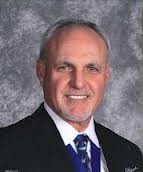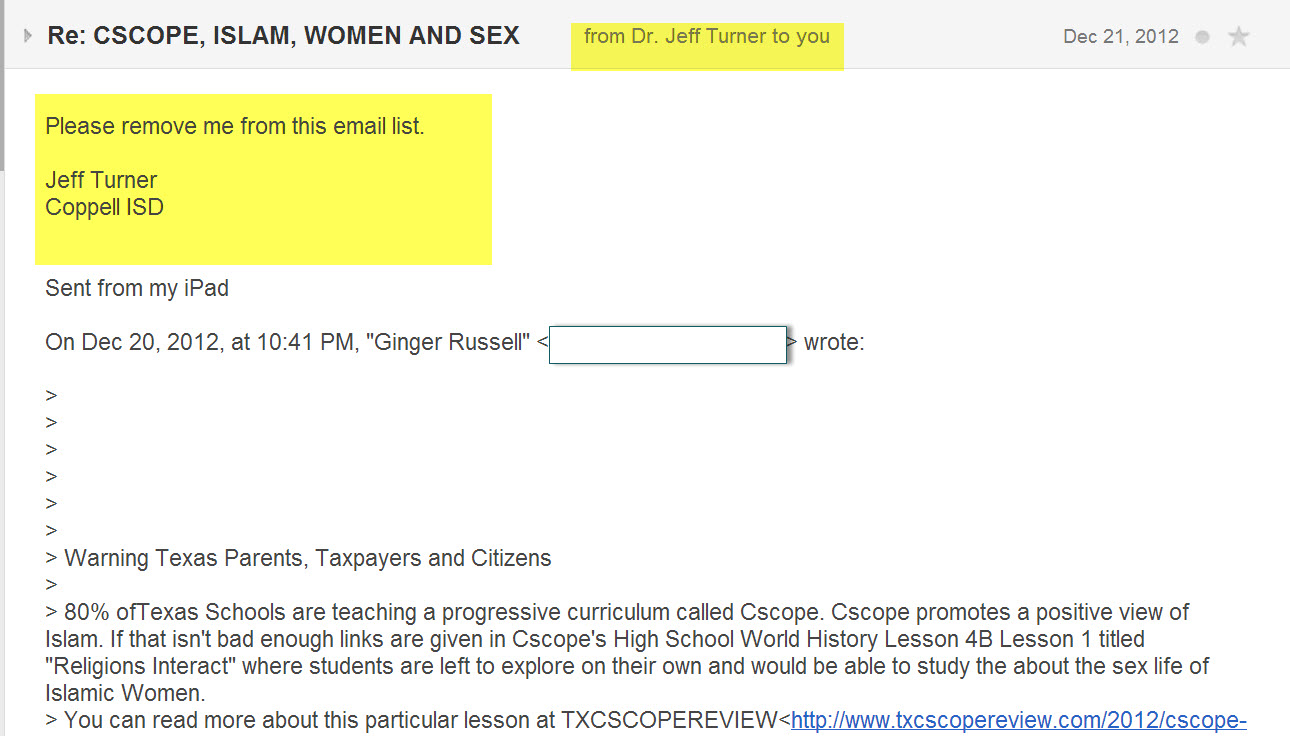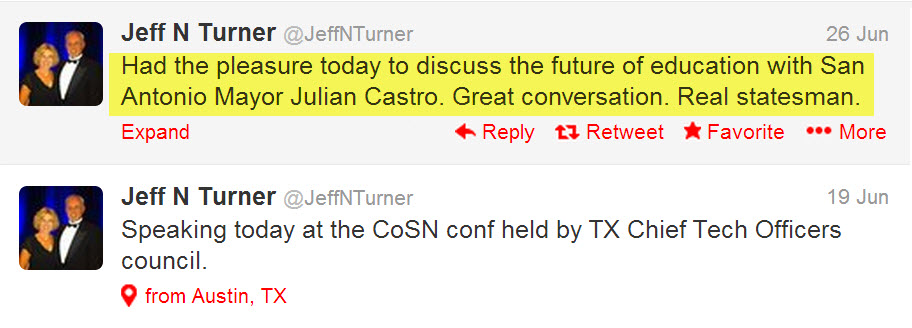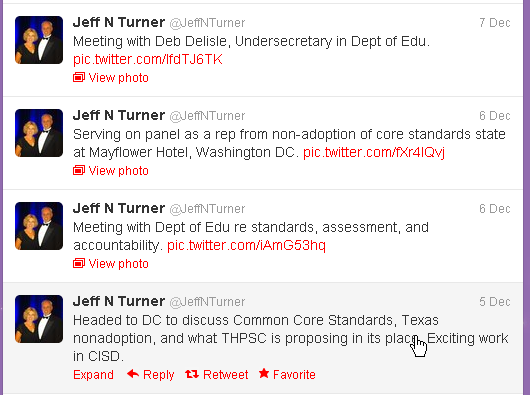I have never seen administrators defend and stand behind any text book in my 52 years, like they have with CSCOPE. Why? Could he it be it was the secretive stepping stone to their progressive agenda to implementing Project Based Learning (PBL)?Dr. Heath Burns, Superintendent of Abilene ISD wrote the following in defense of CSCOPE which makes one wonder how in the world we all got through public education without CSCOPE. Those of us who know what these progressive educators are up to find Dr. Burn’s tear jerking “defense” comical.

DR. HEATH BURNS, SUPERINTENDENT, ABILENE ISD
May 24, 2013
Three and a half years ago, I was honored to begin my service as the Superintendent of Schools
in the Abilene Independent School District. One of the many attributes of the district that drew
me and my family to Abilene was its system of defined autonomy in the classroom. The
students of Abilene have long been recipients of outstanding instruction from creative teachers
who thrived in this type of setting. In short, the campuses and teachers that were experiencing
success and growth were allowed great freedom in selecting lessons that best served the needs
of their students, while those that were struggling could expect more direct guidance. I was
equally pleased that the district had wisely invested in a curriculum management system to
align the curriculum among our many diverse campuses. The system also provided
professionally-crafted lesson plans in support of teachers –both inexperienced and seasoned —
with optional materials and ideas for implementing the state’s required curriculum. That
system is known as CSCOPE, developed and marketed over the past 8 years by a consortium of
our educational service centers working under the auspices of the Texas Education Agency. I
have been pleased by our teachers’ progress in working with this management tool and their
selection of lessons – whether it comes from CSCOPE or a number of other sources – to meet
the needs of their children. I trust my teachers to make those decisions just like they always
have, and I know other superintendents throughout Region 14 and the state feel the same way.
On May 17, teachers and administrators of over 800 public schools throughout Texas went to
bed not knowing that an integral part of our schools’ curriculum was even being debated in the
legislature, much less that its very existence was at risk. The following Monday morning we
were greeted by a press conference where Senate Education Committee Chairman Dan Patrick
described a brokered deal compelling the service centers to discontinue and dismantle over
1,600 model lessons already bought, paid for, and in use by CSCOPE customer districts. You
can’t imagine the resulting shock and disappointment that swept through the education
community.
School leaders that are gathered here today are not here because we believe that all lessons in
CSCOPE are outstanding. In fact, not all of us are in complete agreement about all the complex
issues surrounding the creation and implementation of CSCOPE. Frankly, I have no doubt that
some mistakes are bound to be inherent in some elements of the management system; it is not
perfect. The reason we are here today is because we believe in our teachers, our communities
and our school boards. In Abilene ISD, CSCOPE’s “year at a glance,” “6 weeks at a glance,” and
instructional guidelines are centerpiece of our implementation plan. The model lessons were
just that – models that served as examples of viable lessons. We found them very valuable
models that many, if not most, teachers opted to use to varying extent in their classrooms. How
much and when to use such lessons was a decision we left to our teachers and campus
principals. Abilene ISD’s method of using CSCOPE was only one interpretation of a sound way to
implement. Certainly, other ISD’s had other models of implementation that worked as well for
them. But what to make of all the recent criticism? There has been a lot of coverage about a particular
lesson about the Boston Tea Party. Do I believe, or do our teachers believe, those who took
part in the Boston Tea Party were terrorists. Of course not. They were patriots. But the point is
this: I trust West Texas teachers to discern the appropriateness of this lesson for the students in
their classes. I trust them to make the lesson relevant, and I trust them to make our students
better Americans by posing hard, gut-wrenching questions when they deem appropriate. I trust
them to make the decision that if this lesson is not the best way to teach the idea of civil
disobedience, then they will find a better one. I trust our teachers because I know them. To
throw out 1,600 solid lessons because a few could be clinkers if clumsily taught is ludicrous.
I’m extremely frustrated. Before I heard the news Monday morning, I wholeheartedly believed
that 20 service center directors, the Commissioner of Education, members of our legislative
bodies, members of the State Board of Education, over 800 school boards and superintendents
representing over 800 faculties and staffs and literally hundreds of thousands of students, were
committed to finding a solution to improve the process and satisfy concerns over the
shortcomings of CSCOPE. Unfortunately, most of us did not get a seat at the table. Do I believe
that all CSCOPE lessons are the best quality they could be? I do not. Nor do I believe that any
bank of lessons could be perfect, or immune from misuse. I think the difference between me
and the politicians and others who decided to take this resource away is that I trust our
professional school teachers, both here in Abilene ISD and throughout the state, to know the
difference between those lessons with merit and those that fall short.
I’m happy to report that we have support from members of the State Board of Education and
our local representative in the House, Susan King. Our District 15 SBOA representative Marty
Rowley is a leader of the Board that was already committed to steering a process that would
have offered more scrutiny of all CSCOPE lessons in order to sort out and dispense with those
that failed to meet high standards. I find this approach much preferable to the waste that is
represented in literally throwing away the 1,600 lessons. The State Board’s discernment process
would have afforded districts the means to preserve hundreds, perhaps thousands, of
outstanding lessons produced by Texas teachers. Such statesmanship would well-serve
students, teachers and taxpayers. Vice Chair of the Board, Thomas Ratliff, also made this
statement:
“It’s a sad day when a small handful of urban legislators can do such academic damage
to small rural school districts across the state while in pursuit of a political victory. I have
never thought CSCOPE, or any other resource in our schools, was perfect, but the
accusations and hysteria about this issue are something like I have never seen in public
education. Texas has a heritage of independent public schools and we value local
control. This type of micromanagement from Austin looks more like controlling the
locals and I fail to see how this is a conservative model of governance. In times like this, I
hope the SBOE will stand up for our schools and help fix this unfunded mandate just
handed down by Senator Patrick and Representative Toth.” – Thomas Ratliff In the meantime, Rep. Susan King of Abilene has been a champion for Big Country schools in
the Legislature. Her statement of support is yet another example of her unwavering support of
returning local control to local districts, school boards and educators:
“As the State Representative for House District 71, I have always believed that the
students of the Texas public schools are best served when the government preserves
the authority of locally elected officials and professional educators to make decisions at
the local level. In rural Texas, we must collaborate and work hard to provide our
students as many resources as possible to ensure a quality education. It is disappointing
to me that just a few in Austin have found it imperative to remove local decision making
power away from our local school boards and communities. The Legislature made great
strides in reforming and improving public education this session and I look forward to
working with our communities, local school boards, teachers and superintendents on
building upon these gains.”
Let me conclude with a final thought. I don’t know exactly what happened on May 17 or into
the weekend. Instead of focusing on that, the other superintendents of Region 14 and I will
immediately turn our attention through appropriate means to salvage and rebuild what can be
saved and improved upon. Meanwhile, however, I would personally urge Texans to demand
that local control be returned to our school boards, our communities and our teachers. I urge
Texans to demand answers to why it was necessary to waste the hard work of Texas teachers,
rather than continue to work for a collaborative solution.
Abilene ISD schools, along with the schools of Region 14, will work all the harder and we will be
fine. We trust our teachers to protect and serve our students and we pledge to do everything
that we can to support their efforts.






